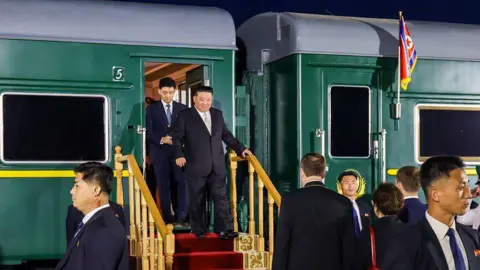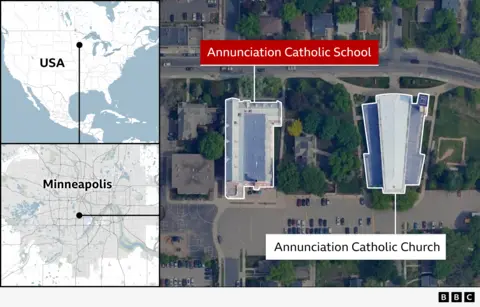In a bold affirmation of the 2018 agreement between the Vatican and China aimed at enhancing relations, Pope Leo XIV has named Joseph Lin Yuntuan as the first Chinese bishop of his papacy. This strategic appointment highlights both sides' commitment to the accord that, among other provisions, allows Chinese officials a role in the appointment of bishops—a topic that remains sensitive given the Catholic Church’s long-held view that such decisions are exclusively papal.
China is home to a Catholic community of about 10 million individuals, who often find themselves navigating a complex landscape where they must choose between state-sanctioned churches and underground congregations loyal to the Vatican. The Vatican declared that Yuntuan’s ministry has been recognized under Chinese law, viewing the appointment as a further development in the ongoing dialogue between the Holy See and Chinese authorities.
Reacting to the news, Lin Jian, spokesperson for China's foreign ministry, indicated that Yuntuan's appointment reflects the “smooth implementation” of the 2018 agreement, suggesting that China is poised to continue fostering improved relations with the Vatican. Michel Chambon, an expert on the Catholic Church at the Asia Research Institute in Singapore, expressed that this move by the Pope signifies a preference for reconciliation over antagonism.
Historically, the relationship between China and the Vatican has faced numerous hurdles, most notably after diplomatic ties were severed in 1951. The Catholic community endured significant oppression during Mao Zedong's regime, with congregants forced to practice their faith underground until the 1980s. The trajectory of these diplomatic relations remains a critical issue, as both the Vatican and China navigate the complexities of governance, faith, and cultural identity in a rapidly changing world.
China is home to a Catholic community of about 10 million individuals, who often find themselves navigating a complex landscape where they must choose between state-sanctioned churches and underground congregations loyal to the Vatican. The Vatican declared that Yuntuan’s ministry has been recognized under Chinese law, viewing the appointment as a further development in the ongoing dialogue between the Holy See and Chinese authorities.
Reacting to the news, Lin Jian, spokesperson for China's foreign ministry, indicated that Yuntuan's appointment reflects the “smooth implementation” of the 2018 agreement, suggesting that China is poised to continue fostering improved relations with the Vatican. Michel Chambon, an expert on the Catholic Church at the Asia Research Institute in Singapore, expressed that this move by the Pope signifies a preference for reconciliation over antagonism.
Historically, the relationship between China and the Vatican has faced numerous hurdles, most notably after diplomatic ties were severed in 1951. The Catholic community endured significant oppression during Mao Zedong's regime, with congregants forced to practice their faith underground until the 1980s. The trajectory of these diplomatic relations remains a critical issue, as both the Vatican and China navigate the complexities of governance, faith, and cultural identity in a rapidly changing world.




















